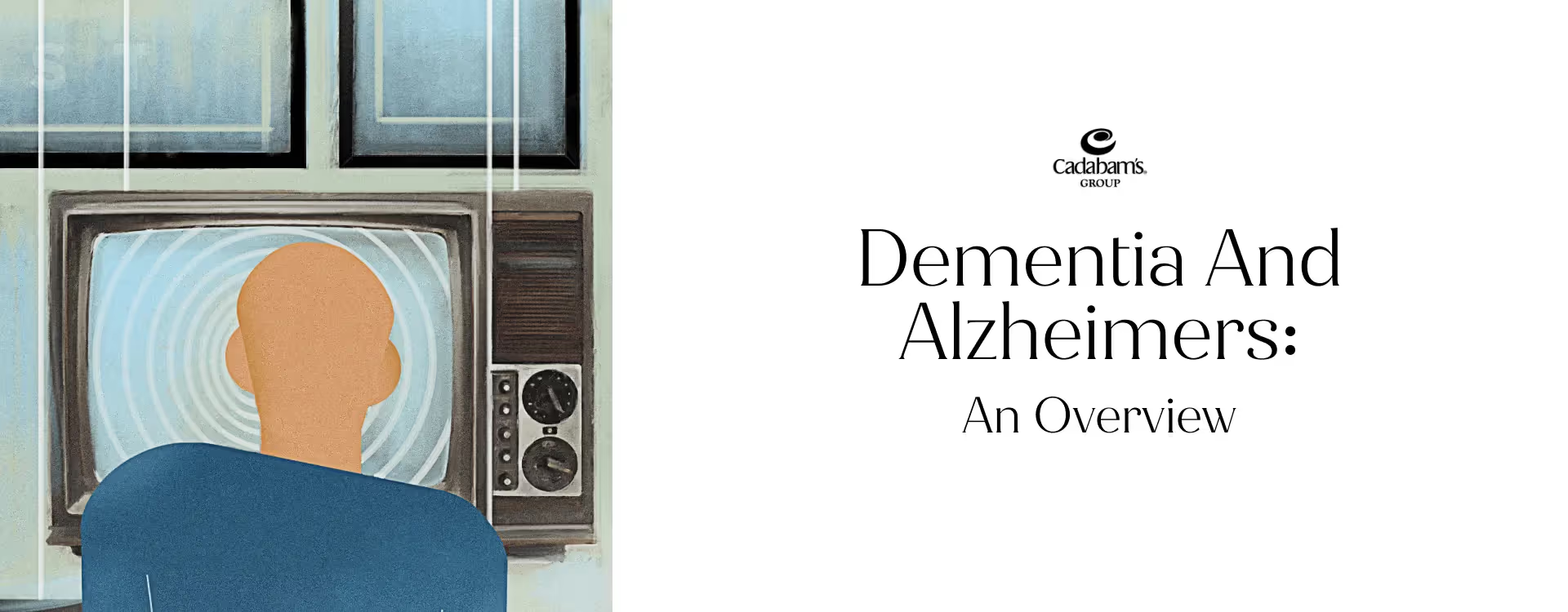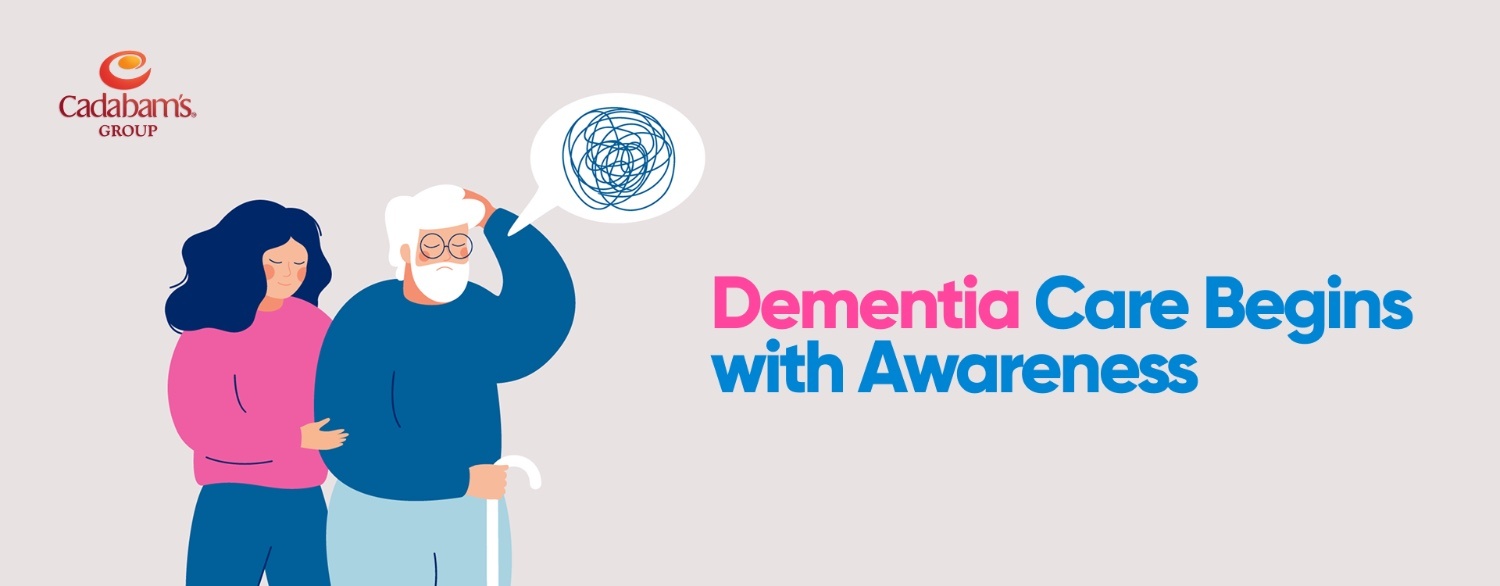Is this applicable to you or someone you know:
- You have trouble remembering where you kept your keys or wallet.
- You have a perfect memory of a movie you saw decades ago, but can’t seem to remember what you ate yesterday!
- You have trouble finding the right change when you are going out shopping.
- You can’t seem to recall familiar faces!
If so, take care!
These are symptoms of memory loss. This could be an indicator of Dementia or Alzheimer’s.
Before you panic, not all memory problems are due to dementia. And not all forms of it are indicative of Alzheimer’s disease.
However, it is vital that you understand what it is, the difference between dementia and Alzheimer’s, and their causes & symptoms. This knowledge can help you recognize symptoms of the disorder in you and your family members. Early detection can help you treat and reduce the symptoms.
What is Dementia?
Dementia is a group of symptoms associated with memory problems, reasoning & thinking issues, and social skills. It isn’t a particular disease but rather a bunch of symptoms that indicate a cognitive decline. It could be caused due to multiple conditions.
A person with dementia will not only have some memory issues, but also issues with language processing, issues in reasoning, concentration, and spatial awareness.
Signs of Dementia:
Dementia is a group of symptoms. Depending on the reasons and conditions, the symptoms of the disorder can vary. Some of the most common symptoms are given below:
Confusion:
Confusion and being muddled are the warning signs of dementia. A person with it might get lost in a familiar place, like their own street or locality, not recognize familiar landmarks, etc. They can also have issues remembering familiar faces, such as those of their friends and family.
Difficulty Finding Right Words:
People with the illness can have trouble talking and carrying on a conversation. A person with dementia might not be able to explain their thoughts clearly, and might have difficulty following storylines. They generally take a long time to converse.
Repetition and Memory Loss:
Dementia affects one’s memory. A fairly common sign is repetition due to memory loss. Repeating routine tasks such as shaving/bathing, and asking a question that has already been answered are symptoms of the disorder as well.
There are more symptoms of dementia. You can recognize the early signs of dementia and learn more about them from our blogs on them.
Types of Dementia
One of the most common causes of dementia is Alzheimer’s disease. It could also be caused by other conditions, such as:
Vascular Dementia:
After Alzheimer’s disease, this is the second most common type of dementia. It is caused when the normal blood flow to one’s brain is restricted. Damage to blood vessels to your brain and strokes could lead to this disorder.
Since it can affect different areas of the brain, memory loss might not be the first symptom of this type of disorder. Difficulties with problem-solving, loss of focus and organization skills, slowed thinking, etc, are more likely symptoms of vascular dementia. Taking steps to preserve the health of your blood vessels and prevent strokes — such as exercising, healthy living, and not smoking — might be helpful.
Lewy Body Dementia:
Lewy bodies are abnormal clumps of a protein that form in the brain and cause the death of neurons. This affects your attention and perception.
A person with Lewy body dementia can have issues with driving and sleeping. They tend to get hallucinations. Another early symptom is the unbalanced and slow movement of limbs. Memory loss is a later symptom of this disorder.
Mixed Dementia:
As the name suggests, a person with mixed dementia has more than one type of dementia. Someone having Alzheimer’s disease can also be suffering from blood vessel damage (vascular dementia).
Huntington’s Disease:
Huntington's Disease is a genetic neurodegenerative disease. The symptoms and signs of this disease start manifesting between the ages of 30 and 50 years.
The early symptoms include uncontrolled and unbalanced body movements, especially in your arms, legs, face, and upper body. As the disease progresses, it leads to problems in memory, concentration, and reasoning. Other psychiatric symptoms are depression, anxiety, aggression, and compulsive behaviors.
Dementia can also be caused by other conditions such as Parkinson’s disease, Frontotemporal dementia, Down Syndrome, Creutzfeldt-Jakob disease, etc. However, the main cause of the disorder in adults, accounting for almost 60-80% of cases, is Alzheimer’s disease.
What is Alzheimer's Disease?
Alzheimer’s Disease is a degenerative brain disease caused due to the buildup of amyloid ‘plaques’ and neurofibrillary ‘tangles’ that damages the neurons in your brain.
Symptoms of Alzheimer’s:
Memory loss is one of the early symptoms of Alzheimer’s. Having trouble remembering new information is the most common symptom. This is so because Alzheimer’s impacts those parts of the brain associated with learning.
As Alzheimer’s progresses, the symptoms of dementia get worse. Over time, advanced symptoms like disorientation, confusion, and changes in behavior can develop. These symptoms might be mild at first, but later turn severe. This can severely impact the daily life of people with Alzheimer’s.
While increasing age is the most known risk factor for Alzheimer’s, the disease itself cannot be considered a part of aging. It is caused due to brain cell damage. Though, currently, there is no outright cure for Alzheimer’s disease, medication, and other treatments can help manage and prevent the worsening of symptoms.
The Difference Between Alzheimer’s and Dementia
As explained, Dementia is a group of symptoms that signify cognitive decline. It can be caused by a variety of reasons and conditions. Some symptoms of dementia are memory loss, confusion, loss of motor skills, and issues with judgment & reasoning.
Alzheimer’s disease is the most common type of dementia. Memory loss is the most common and early symptom of Alzheimer’s. Alzheimer’s disease, as of now, has no permanent cure. However, by using medication and treatment, we could manage the symptoms and slow down the progress of the disease.
Care for Dementia and Alzheimer’s:
As of now, there is no definitive cure for most cases of dementia and for Alzheimer’s disease. As the disease progresses, the symptoms get more severe. Gradually, even their daily life gets disrupted. They can need help with walking, dressing, talking, and even swallowing. A caretaker should be involved in day-to-day support. Also, the caretaker needs to manage the fluctuating moods of the patient.
This takes an emotional and physical toll on the caretaker. There are many support groups for people with Alzheimer’s and their loved ones/caretakers. Taking care of a family member suffering from dementia or Alzheimer’s is a huge task. So, please don't hesitate to reach out for help. You can call us at +91 97414 76476 or visit our website.
.webp)









